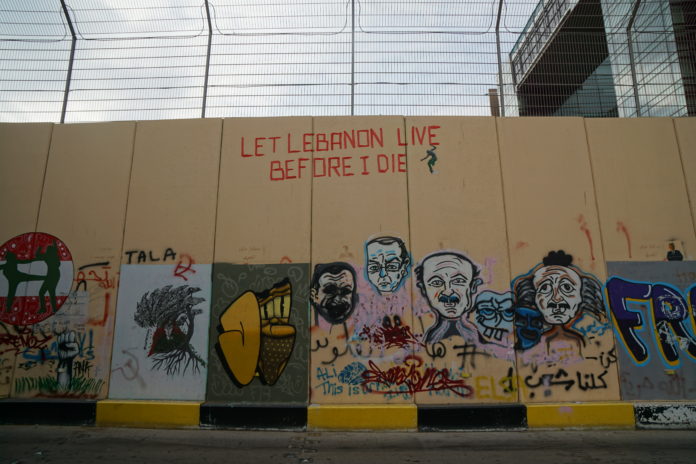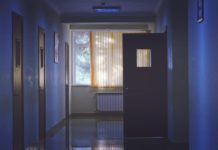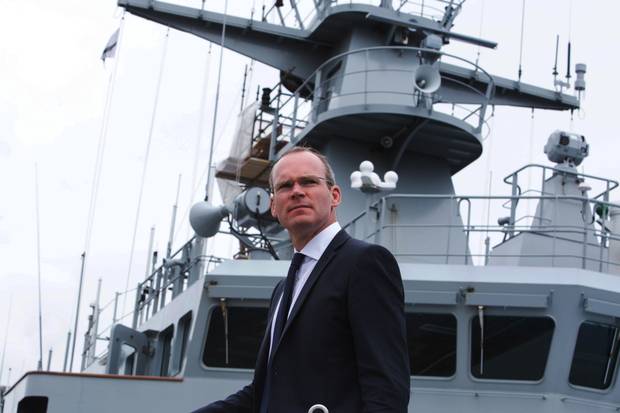BEIRUT: When the Lebanese government proposed a ‘Whatsapp’ tax on phone calls made on social media platforms last October, it triggered an angry backlash from a public frustrated by decades of economic mismanagement and cronyism among Lebanon’s political ruling clans. The first anti-government protest (the “Thawra” or revolution in Arabic) took place on 17 October 2019 and was followed by weeks of marches and mass gatherings at Martyr’s Square in downtown Beirut.
This wave of anti-government protests came four years after the widespread but ultimately unsuccessful protests provoked by a waste-management crisis in Lebanon in 2015 (the “Harak” or the movement). “It’s not the garbage that stinks, you stink”, became a rallying call of the Harak after a Facebook video posted by an activist used the phrase about Lebanese politicians.
The early Thawra protests were heady, highly energised, and generated wide publicity. The movement scored an early win at the end of October 2019, with the resignation of Prime Minister Saad Hariri, leader of the Sunni-backed Future Movement Party and head of the government which had imposed the provocative Whatsapp tax.
The protesters demanded what they saw in other countries: better infrastructure and services like a reliable energy supply and refuse collection. The demands of the movement also came to include an end to the discriminatory law which prevented Lebanese women passing their citizenship to their children.
The Thawra protestors also called for change to the political system but it wasn’t always clear what change they demanded. The sectarian nature of Lebanese politics and that country’s constitution have fueled cronyism and proved a barrier to socially inclusive and progressive policies in the country. While some called for secularism and constitutional change, others called for new, younger candidates to be run by the existing, religiously affiliated political parties in Lebanon (a sort of younger version of the status quo).
The Thawra movement was arguably Lebanese-centric. It did not decry with any real urgency the lack of citizenship or legal residency provided for Syrian and Palestinian refugees in Lebanon, nor the kafala sponsorship system, that lead to exploitative and abusive work conditions for the countries estimated 250,000 migrant domestic workers.
The early scalp of Prime Minister Hariri also did not give the movement the momentum that it needed to sustain itself in the longer term, particularly against increasingly aggressive Lebanese security forces and Hezbollah-backed militias. By January 2020, the economic situation in Lebanon had deteriorated, as had the energy of the Thawra movement.

After the COVID-19 pandemic was accepted as a global risk, the Lebanese government swiftly imposed a strict lockdown in March 2020, with some commentary suggesting that the lockdown was politically motivated to keep protestors off the streets rather than patients out of ICUs.
A strict lockdown in a country like Lebanon with no social welfare apparatus pushed many Lebanese to their financial brink. The lack of government support during the lockdown, combined with the strict capital controls imposed by commercial banks on cash withdrawals and international transfers, left many unable to afford basic food and necessities.
When a port blast erupted on 4 August 2020 after 2,750 tonnes of ammonium nitrate abandoned and unsafely stored ignited, the country was still emerging from a strict lockdown. The blast tore through the industrial heartland of the port, the Charlie Helou road, the upmarket Achrafieh district, as well as the working class and artistic quarters of Gemmayze and Mar Mikhael. Few places in Beirut were untouched by the blast.
In the days after the blast, people took it upon themselves to gather up the debris and clean the streets, with the army and police relatively absent. A bookstore owner on Rue Gouraud in Gemmayze reported that when, days after the port blast, the military did appear on the streets, it was to act as lookouts rather than provide any meaningful assistance to those trying to repair their battered and destroyed homes and stores.
On 8 August 2020, a massive and emotional protest took place at Martyr’s Square. Angry and traumatised Beirutis, who had been injured, lost loved ones and seen their homes and businesses destroyed, gathered to express their rage at the government’s failure to protect them.
The country’s economy had already been in freefall before the port blast with the local Lebanese lira losing 80% of its value, wiping out the domestic savings of many Lebanese people, and leading to a sovereign bond default in March 2020. For outsiders, it seemed unthinkable that change would and could not follow the catastrophic damage caused by the port blast. The Lebanese government’s corruption and ineptitude had caused damage to Beirut similar in scale to that caused by the civil war that ravaged the country from 1975-1990.
In the aftermath of the port blast, 300,000 people were left homeless, the economy further deteriorated, technocrat caretaker Prime Minister Diab and his cabinet resigned, and, despite the precarious position of the country, government formation talks between Lebanon’s political parties stalled.
An anniversary protest was organised on 17 October to commemorate the start of the anti-government protests in 2019 and the more than two hundred victims of the port blast. The protest received an anaemic response, with only about 1000 people showing up. Among the protestors were students Karim Shaito and Razan el Mawla. Mawla called for the Lebanese public to support a secular Lebanese state, while Shaito, who had been part of the 2019 protests, described the turnout for the anniversary protest as “disappointing”.
The anniversary protest was effectively over by 7 pm, when security forces began grappling with the few groups of young protestors still hanging around Martyr’s Square. The youths threw an occasional stone at the forces, seemingly as much out of boredom as political conviction.
After the main protest had dissipated a group dressed as pagan worshipers danced down Rue Gouraud, a street just of Marty’s Square. A local Lebanese student asked a German photographer covering the anniversary protest what he thought. “It’s theatre”, said the photographer, with the student responding, “that’s the most honest thing anyone has said today.”
With an estimated 55% of people in Lebanon living in poverty and 23% living in extreme poverty, according to statistics compiled by the UN before the port blast, it is not hard to imagine that daily struggles may have taken precedence over protests for many individuals.
The sense of defeatism among protestors was heightened when President Aoun invited Saad Hariri to become Prime Minister and form a coalition government in October, just a year after Hariri resigned due to the public outrage over the Whatsapp tax.
The devaluation of the Lebanese lira has continued since the port blast, while a lack of economic prospects has pushed Lebanese and immigrants in Lebanon to look for jobs in other countries. Many people have left the country on boats organised by smugglers from Tripoli, including educated Lebanese people facing repeated rejection for visas from countries who have imposed strict travel restrictions and who have their own Covid-19 induced economic issues with which to contend.
Any reckoning with the chronic mistreatment of foreign domestic workers was also dashed, when, in October, a Lebanese court ruled against the Lebanese government’s legislation that would have replaced the abusive kafala sponsorship regime with a contract system. The contract system would have provided domestic workers with the right to retain their passport, a 48-hour workweek, a rest day, overtime payment, as well as sick and annual leave.

The one bright point for the movement was the success of the American University of Beirut’s Secular Club at the student council elections in November 2020. The Secular Club’s values are informed by “feminism, social justice, economic justice, secularism, workers’ rights, and the rights of marginalised groups”, according to Lama Jamal Eddine, secretary of the Club.
The Secular Club, which is affiliated with the Communist Party and centre left Li Haqqi group in Lebanon, won 9 seats of the 19 available on the Student Council, the largest share of any group in the elections. Student candidates are usually affiliated with the national Lebanese parties, which is why the student elections often reflect national political support in Lebanon.
The Lebanese poet and friend of W. B. Yeats, Khalil Gibran famously wrote: “If Lebanon was not my country, I would have chosen it to be”. Gibran’s sentiment is one that many typically proud Lebanese may struggle to express right now. Undoubtedly, many scarred by the port blast and poorer from the failing economy, will leave to work abroad. They will hope to find jobs in countries where governments don’t destroy their homes and businesses, and then leave them to tidy up the rubble.
As winter arrives in Lebanon, the Harak and now the Thawra may have withered but the seeds for a future secular movement may have been sown among younger Lebanese students.
Eddine plans to stay in Lebanon after college to be “a part of the radical, progressive, leftist change”. “The country needs people like me to fight the corruption and criminality of the state”, says the psychology student.
In the future, Eddine hopes to see Lebanon as a “secular, independent state, free of the rule of sectarian political parties, and their racist and capitalist policies” – a hope that right now looks remote for Lebanon.





